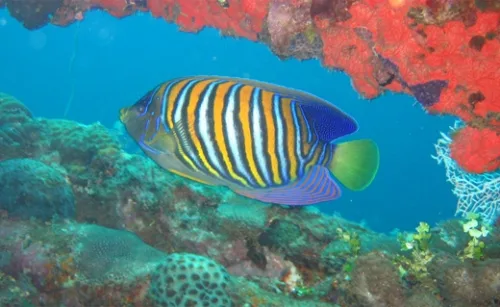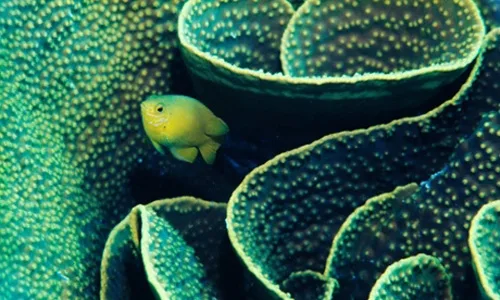News•April 19, 2014
Rising CO2 Levels Threaten Entire Marine Food Chain
By Oliver Milman, The Guardian
Escalating carbon dioxide emissions will cause fish to lose their fear of predators, potentially damaging the entire marine food chain, joint Australian and U.S. research has found.
Escalating carbon dioxide emissions will cause fish to lose their fear of predators, potentially damaging the entire marine food chain, joint Australian and U.S. research has found.
Credit: NOAA/flickr

A study by the Australian Institute of Marine Science, James Cook University and the Georgia Institute of Technology found the behavior of fish would be “seriously affected” by greater exposure to CO2.
Researchers studied the behavior of coral reef fish at naturally occurring CO2 vents in Milne Bay, in eastern Papua New Guinea.
They found that fish living near the vents, where bubbles of CO2 seeped into the water, “were attracted to predator odor, did not distinguish between odors of different habitats, and exhibited bolder behavior than fish from control reefs.”
The gung-ho nature of CO2-affected fish means that more of them are picked off by predators than is normally the case, raising potentially worrying possibilities in a scenario of rising carbon emissions.
More than 90 percent of the excess CO2 in the atmosphere is soaked up by the oceans. When CO2 is dissolved in water, it causes ocean acidification, which slightly lowers the pH of the water and changes its chemistry. Crustaceans can find it hard to form shells in highly acidic water, while corals risk episodes of bleaching.
The AIMS study found the diversity of fish at the CO2 vents was not influenced by the extra carbon, but that fish’s nerve stimulation mechanisms were altered, meaning the smell of predators became alluring.
“What we have now also found in our study of fish behavior in this environment is that the fish become bolder and they venture further away from safe shelter, making them more vulnerable to predators,” said Alistair Cheal, co-author of the research.
A lemon damselfish finding shelter in coral. Exposure to CO2 will make it more adventurous, and endanger its life.
Credit: Bates Littlehales/Corbis via The Guardian

While fish at the vents faced fewer predators than usual, the consequences for fish in the wider ocean could be significant as more CO2 was dissolved in the water.
“Continuous exposure does not reduce the effect of high CO2 on behavior in natural reef habitat, and this could be a serious problem for fish communities in the future when ocean acidification becomes widespread as a result of continued uptake of anthropogenic CO2 emissions,” the study said.
A report released last year, which had input from the University of Western Australia’s Oceans Institute, found global warming could cause oceans to become 170 percent more acidic by the end of the century, the fastest rate of acidification in the past 300 million years.
Hugh Sweatman, research scientist at AIMS, said: “The acidification of the ocean is much discussed because it’s potentially a gigantic thing. It’s the difference between normal water and soda water, if you like.
“Ocean acidification seems to reverse sensations in fish so that things that smell repulsive become attractive. The small change in pH has a big impact on the fish.
“Little fish are generally very nervous and stay close to shelter. This reverses this, meaning they are more vulnerable and become eaten more quickly.”
Reprinted with permission byThe Guardian.